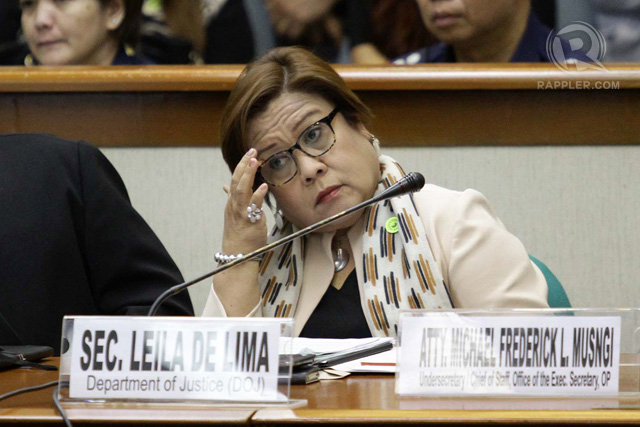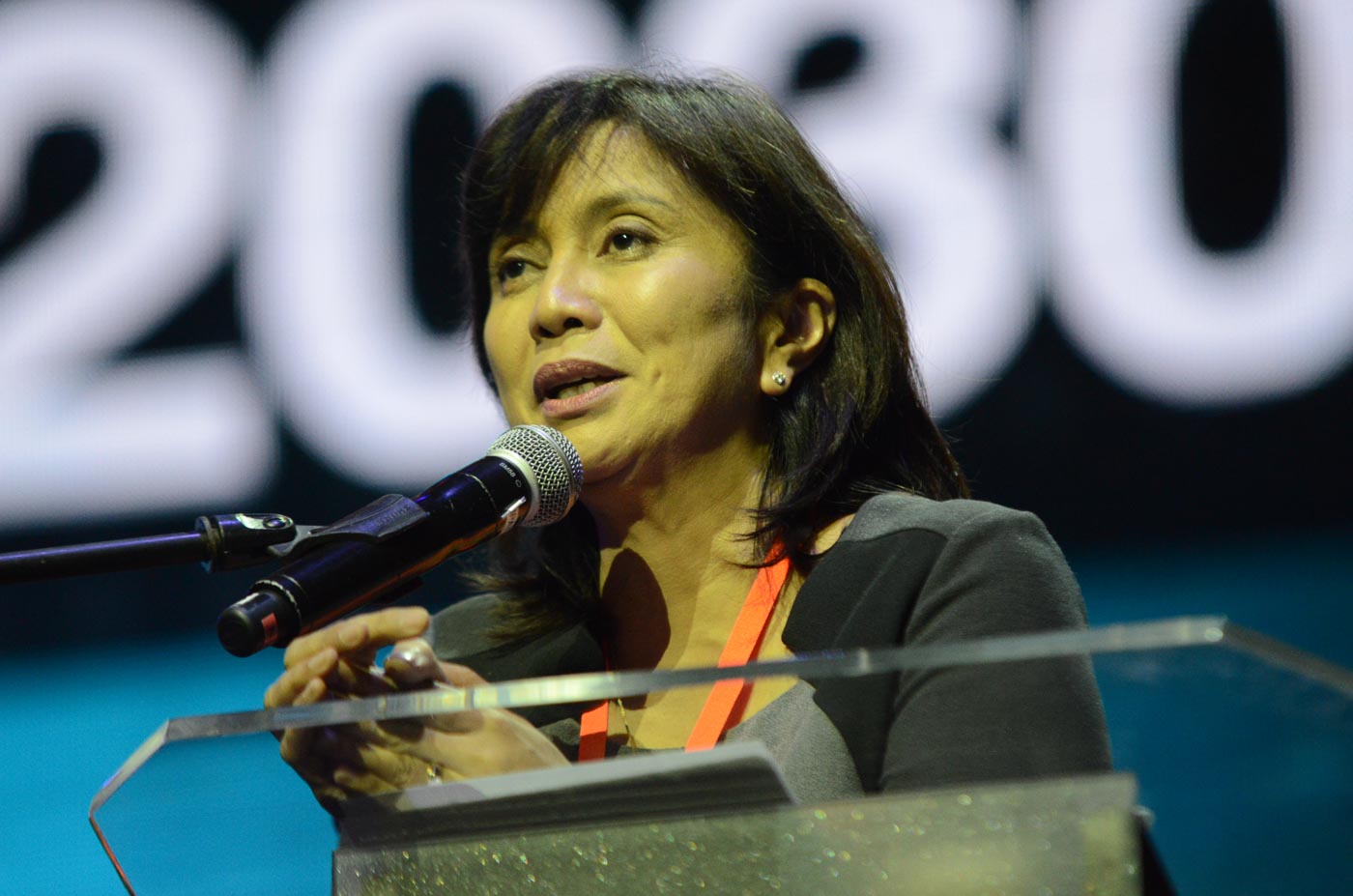 Living on the edge poses risks and dangers. But it also enables a sense of adventure that sometimes propels meaningful change even in our policies and practices. Much like the thrill of intimacy - however momentary - especially after enduring loveless, sexless or even violent unions, which are as yet expensive and embarrassing to unmake.
Living on the edge poses risks and dangers. But it also enables a sense of adventure that sometimes propels meaningful change even in our policies and practices. Much like the thrill of intimacy - however momentary - especially after enduring loveless, sexless or even violent unions, which are as yet expensive and embarrassing to unmake.
But politics can debase the beauty of challenging boundaries, particularly when this means disrupting the norms that perpetuate male privilege. The attacks can only be more vicious when even the most respectful dissent becomes a more direct threat to patriarchs themselves. Hence at the center of the misogynist pronouncements and actions of the Duterte Administration are two women leaders — Senator Leila de Lima and Vice President Leni Robredo — who are unrelentingly subjected to the double standards of morality.
De Lima led the investigation on the spate of extrajudicial killings (EJK) of suspected drug users. As of November 2016, the death toll is nearing 4,000, which includes civilians whom President Rodrigo Duterte described as “collateral damage.” But rather than addressing EJK, its impacts on widowed partners, orphaned children, burgeoning prisons, and, more importantly, the role of the Administration in its support for the “war on drugs,” the President pointed out her liaison with her driver and bodyguard. (READ: The public trial of Leila de Lima)

‘Immoral woman’
Following the President’s statement about the Senator being an “immoral woman,” leading figures from his male-dominated Cabinet and the Legislature took their turns in challenging de Lima. The head of the Justice Department presented de Lima’s former aides to testify against her. The Senate Majority stripped her off the chair of the Committee on Justice that was conducting the hearings on EJK. Her replacement, a Duterte ally, immediately called off the investigation. Then in his bid to conduct an investigation on de Lima’s credibility, the Speaker of the House of Representatives (HOR) threatened to play her supposed sex videos with her driver during the public hearings.
Amid these attacks, the Senator disclosed her seven-year relationship with her driver, who is married with another woman. De Lima was herself married but got an annulment. Now under the custody of the HOR, her former driver, Ronnie Dayan, wears a visibly stressed mien and sings a seemingly expected tune: He identified himself as de Lima’s bagman, who collected money from drug lords, particularly those whom the Administration has been running after. (READ: De Lima: House inquiry a spectacle 'full of lies')

Women’s rights advocates may have prevented the showing of de Lima’s supposed sex video with a viral #Everywoman campaign. But the quick turn of events in the last few days caught the nation in shock and dismay when male legislators questioned De Lima’s former driver and partner over their seven-year relationship and pressed for even the more salacious details, which should have been kept private.
It is ironic that the public hearing happened on the eve of the International Day for the Elimination of Violence against Women. One of the lawmakers was once accused of domestic violence that gave rise to Task Force Maria, which in turn advocated for the passage of Republic Act 9262, otherwise known as the Anti-Violence Against Women and Children Act.
Unwanted attention
Meanwhile, the Vice President has not escaped the inappropriate behavior of the President. Admitting that he ogled at Robredo’s legs to a jeering crowd, he recounted, “You know ma’am Leni would always wear skirts which are shorter than usual. At one time, Dominguez [the Finance Secretary] asked me (to) come closer because I was far from them. But I told him, ‘Come here. Look at (Robredo’s) knees.” A remark like this is one of several that actually constitutes sexual harassment.
Following her criticism of the clandestine burial of the dictator Ferdinand Marcos in the pantheon of heroes, Robredo once more became the subject of innuendoes especially in social media. A widow of a revered public official, rumors about her pregnancy and relationship with a married man made the rounds.

Although the candidacy for their current posts were supported by a mainstream political party, de Lima and Robredo have been operating with significant independence. For starters, they do not belong to political dynasties. They rose into prominence because of their work as lawyers doing private practice and community service. Their government careers can be characterized by substantive and sometimes progressive interventions that they were able to draw the support of civil society, including women’s rights advocates.
But as they face their most bruising battles in their political careers, few voices from the opposition are openly defending them. After all, scores of Liberal Party members have jumped ship to the ruling parties while some progressives would reason that there are more important tasks at hand.
The fear of losing political favors, or conversely, suffering political vindictiveness may have prevented solid support to these women among their peers. But there is also a history of reluctance in engaging these double standards of morality. This has made some aspiring women leaders bow out during the campaigns or losing in the elections while their male counterparts managed to run and win elective posts despite their identification as womanizers. Duterte and two other men were elected as Presidents despite their publicly known extra-marital affairs. (READ: Duterte: Yes, I'm a womanizer)
Rise of the sexists
The discriminatory attacks against de Lima and Robredo have no value in exacting accountability for any wrongdoing. Instead, they only fuel the resurgence of a cavalier discourse, debasing human rights, particularly women’s rights over our identities, bodies, sexualities, mobility, relationships, as well as access to political participation, economic empowerment and social services. Moreover, they erode years of individual and collective struggles, which have resulted in the progressive laws on women’s rights and gender equality and the impetus to transform some more policies and practices.
Indeed one of the recent recommendations of the Committee on the Commission on the Elimination of All Forms of Discrimination against Women (CEDAW) to the Philippines as a State Party to the Convention is to amend the laws which result in the unequal treatment between women and men who engage in extra-marital affairs and who desire to be free from unwanted unions. It is easy to charge women with bigamy by any evidence of an extra-marital relationship than to charge men with concubinage, which requires proof of co-habitation. (READ: PH women craft global women's rights agenda)
“Morality” may have been mentioned in the Universal Declaration of Human Rights (UDHR) as a limitation to the exercise of rights and freedoms. But the term has never been defined, much less used as an anchor even in succeeding international human rights standards such as CEDAW. Instead, morality has been used in different national laws to discriminate women from exercising their rights to marriage and family life, inheritance, education, political participation, among many others. As former Special Rapporteur on violence against women Yakin Erturk observed, “‘Public morality’ clauses in legislation generally serves to undermine women’s rights.” In the Philippines, “morality” as advanced by the Catholic hierarchy had been a formidable barrier to 16 year-struggle towards the Responsible Parenthood and Reproductive Health Law.
If these double standards on morality against the more visible women leaders persist and prevail, it will not take a long time before it becomes undesirable for women to think critically, express our opinions fearlessly, organize with other women, raise kinder kids out of non-traditional families, derive pleasure from our bodies and sexualities, pursue love freely or even recognize the power within ourselves to initiate change. It is nothing short of living in the pink of health but tied down to a death bed. – Rappler.com
Nina Somera has been working on women and gender issues for nearly 15 years in Asia-Pacific. She was part of the campaign “Whose Morality?” when the ASEAN Human Right Declaration was being drafted and the term “public morality” was being considered as a limitation to human rights. Nine out the 10 ASEAN countries voted to take out the term.